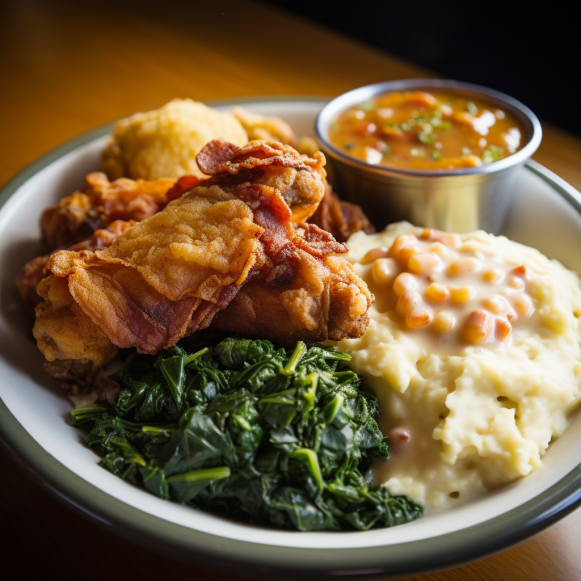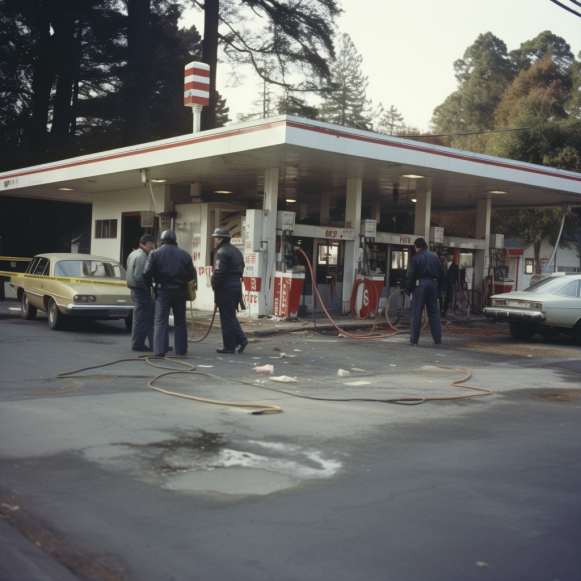Searching for the chicken in Petaluma, the former Egg Basket of the World

It’s no longer the biggest poultry center on earth. But the Sonoma city is still a fine place for farm stands, frittatas and Southern fried chicken.
A kingdom of ten million white leghorns. Chickaluma. The World’s Egg Basket.
All of these were once nicknames for Petaluma, a charming little city in Sonoma County’s agricultural heart. By the early 1900s, the area had a thriving poultry industry, fueled by a locally designed egg incubator, and was producing 120 million eggs per year. There were Egg Queen-led parades, the world’s only poultry pharmacy, and more money on deposit in banks per capita than anywhere else on the planet.
But how brave is Petaluma… now?
To find out, my colleague and I drive into the countryside under a misty sun that resembles a large egg yolk. We have Cool Hand Luke’s determination to eat 50 eggs or explode trying. When you walk into Petaluma, you can see evidence of its colorful past around every corner. Chickens are painted on fading shop walls, metal roosters stand outside a restaurant, and a large sculpture of a white hen can be found at the fairground. That last one requires maintenance on a regular basis because the local kids like to ride it like a horsey.
For breakfast, we go to Stellina Pronto, a downtown Italian bakery that serves an excellent egg frittata. When Osteria Stellina in Point Reyes Station closed due to the pandemic, the owners opened this more casual spot, which serves pastries, sandwiches, and third-wave coffee accompanied by Straus dairy. We have a brain fizzle because the counter is piled high with fresh-baked treats – do we want a breakfast puff with Point Reyes Toma cheese… or tomato focaccia… or a hazelnut brutti ma buoni (a Piedmontese meringue whose name means “ugly but good”)?
Eggs, eggs, and more eggs. If you want to get Stellina’s fluffy frittatas, which come with local Caggiano Italian sausage and Hobbs ham or fresh veggies with herbs and cheese, arrive before 11 a.m. They’re slow-cooked in a cast-iron skillet with organic eggs from Coastal Hill Farm, a co-op west of town that has garnered Instagram praise such as “Your eggs r the best we have ever had in our lifetime!” The color is yellow velvet, and the flavor is insane!”
With our appetite for albumen whetted, we set out in search of the real, raw deal. The countryside surrounding Petaluma is dotted with farm stands selling fresh eggs by the dozen. They are usually more expensive than grocery store prices, but you will notice a difference in quality when making something delicious at home.
We arrive at Hicks Mountain Hens, an unmanned stand that sells fresh eggs ($10 per dozen) and raw honey, as well as a coin-operated chicken feed machine. When we get close to the machine, what was once an empty nearby field transforms into a sea of chickens, with thousands of beaks, beady eyes, and flapping wings pressing against the wire fence. A tourist family enjoys the frenzy, with the little girl tossing feed into the flock of chickens.
Tenfold Farmstand, located up the road, is housed in a historic two-room schoolhouse built in 1895. Chard, eggplants, and mini Juliet tomatoes are on the barn shelves, as are organic vegetable starts for your garden. Inside, there are intricate floral arrangements, baskets of the season’s last strawberries – dark-red and deeply fragrant – and the treasure we seek: fresh Tara Firma Farms eggs with yolks like liquid gold ($15 a dozen).
Tenfold serves as a community gathering place. It has live farm music on Friday mornings and Blooms End, a traveling bakery pop-up with a cult following. In addition, there will be vintage clothing sales, holiday fairs, children’s book swaps, and classes on how to make kokedama, which are Japanese-style moss balls used to grow ornamental plants.
While we now have eggs, which will be transformed into sponge cake and fresh pasta, we lack answers. How did Petaluma become such a chicken town? We go to the free Petaluma Historical Library and Museum, which is housed in a beautiful Andrew Carnegie library downtown and has a permanent exhibit about the local chicken industry on the upper mezzanine.
There’s an egg-cleaning machine from the 1950s with long screws that look like a backwoods torture device, poultry lung and kidney removers, and photos of one of the city’s many Egg Queens who marched in egg parades. Among her adoring retinue, this Queen wears a feathered gown and poses on a chicken sculpture – a barnyard Venus de Milo.
When a local dentist named Isaac Dias patented an artificial egg incubator in the 1870s, the industry took off. The incubator accelerated the hatching process, allowing hens to skip nesting duty and lay more eggs. Petaluma was the world’s largest poultry center by 1925, with 2 million hens, and by World War II, it had reached peak production of 612 million eggs per year.
Lyman Byce, a fellow, later joined Dias in marketing his incubator. When Dias died in a suspicious duck-hunting accident, Byce attempted to claim credit for the invention while erasing Dias’ name from history. Dias’s face is blank in the museum portrait because no photos of him exist. There’s a mural of Byce by “his” incubator downtown; hunched over and sporting a shady mustache, he looks like he’s stealing eggs.
Petaluma eventually faded from prominence in the poultry industry due to a variety of factors, including industry automation and a lack of government subsidies. We look over a USDA poster about egg quality – an AA egg means the “white is thick, stands high” – and then go out to get more eggs, this time in liquid form. Barber Lee Spirits is a small craft distillery with a barrel-tasting room decorated with a mural of a ferocious rooster. Flights of double-gold-winning spirits like single-malt rye, heirloom-corn bourbon, absinthe, and moonshine are available, as are cocktails as expertly made as anywhere in San Francisco.
We order a Fuzzy Buzzy Julep ($15) with bourbon, honey, lemon, fresh mint, and an egg white topping. If you like eggy drinks, they’ll make you something out of the ordinary, like a Midnight Rider with apple brandy, activated charcoal, and egg white, or a Big Baller with absinthe blanche, Madeira, brandied cherry syrup, and frothed egg.
We’ve gotten to know eggs well enough that we’d like to meet their grown-up cousin, the chicken. Across the street is Easy Rider, a recently opened restaurant whose chef, Jared Rogers, specializes in Appalachian and Carolina Low-Country cuisine.
We take a seat at the bar, and our server brings us a glassy vitrine containing a smoky plate of steak tartare with muffuletta olives, house steak sauce, and… a country egg ($18). They are unavoidable! Then there’s a platter for two with Frank’s RedHot-marinated fried chicken, collard greens, bacon-topped mac ‘n’ cheese, and a silver tureen of herby-white bacon gravy ($35.50).
The meat is exceptionally juicy beneath its crackling, salty, paper-thin crust. The gravy appears to be a hat on a hat, but that’s typical Southern cooking: we dip everything into it, with no regrets.
“What came first, the chicken or the egg?” Who knows? We’re just happy to be here in Petaluma, the still-thriving poultry heartland.






